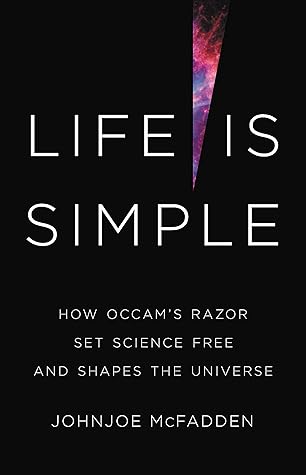Kindle Notes & Highlights
Read between
April 20 - May 7, 2022
Aristotle avoided this problem by capping his hierarchical chains of causes with the prime mover, or God, who was the first and the final cause of everything. This, for Aquinas, clinched the deal he struck between theology and Aristotle’s philosophy.
Most theologians would have categorised this miracle of transubstantiation, as it is called, in the same class of events as Jesus turning water into wine or Moses parting the waters of the Red Sea. It involves intervention of the divine and was thereby not expected to conform to the usual rules that apply to normal life. Aquinas, however, was convinced that he could incorporate even miracles into his scientific model of the world. To do so, he reached for another gift from the ancient world, philosophical realism.
The implications of divine omnipotence had been rumbling through the cloisters of Oxford for a generation before William arrived. His predecessor Duns Scotus (1266–1308) had discussed the problem of knowing the difference between right and wrong if God could, arbitrarily, change the rules. William went much further. In an approach that foreshadowed Descartes’s dismantling of Western philosophy until he reached the famous dictum of ‘cogito ergo sum’, Occam used his razor to strip away everything in medieval philosophy except God’s omnipotence.
apart from the law of non-contraction (for example, He cannot simultaneously exist and not exist), an all-powerful God does not need to conform to human reason. For example, he might do unreasonable things, such as make plants on day three of creation (as in the Book of Genesis) before he made light to sustain them on the following day. Although such an order of events might offend Aristotle’s reason, it was in God’s power to sustain plants, in the dark, for as long as he liked and without providing humanity with any reason for why he chose to do so.
We can see here our first encounter with William’s razor, in the argument that ‘it is vain to do with more what can be done with less’. In itself, this was not entirely new. Nearly two millennia earlier, in his Movement of Animals, Aristotle had written that ‘nature does nothing in vain’. However, rather than an argument for economy in nature, William uses the razor to attack the logic that underpinned universals. He writes that ‘The universal is not some real thing having a psychological being (esse subjectivum) in the soul or outside of the soul. It has only a logical being (esse objectivum)
...more
In Occam’s logic, devoid of universals and filled only with individuals, the only way to gain sure knowledge is through experience and observation. This is, of course, the cornerstone of modern science.
his religion came, not from reason, but through faith and study of the scriptures, none of which provides the certainty required of scientia. He thereby embraced fideism to argue that ‘only faith gives us access to theological truths. The ways of God are not open to reason…’16 Faith was for God. Reason was for science.
John XXII begins his attack on the Franciscans by reiterating Giles and insisting that ‘Dominion over temporal things was not established by primeval natural law, understood as the law common to animals… nor by the law of nations, nor by the law of kings of Emperors, but by God who was and is the Lord of all things.’9 In this John XXII was following the traditional philosophical realist position, which saw natural law as an aspect of the divine reason that saturates the world with God’s plan as its final cause. Like the universal of fatherhood, a right was considered to be something that
...more
However, after enjoying the ideal ‘state of nature’ outside the garden, the righteous among Adam and Eve’s descendants found themselves having to deal with greedy individuals who consumed more than their fair share. In order to deal with this, they were forced to agree on what was an equitable share of the commonly held resources. From this came the concept of private property, what we call today ownership. Most importantly, this ownership or dominion did not come from God. It was instead an entirely human concept designed to avoid strife.
William also pointed out that pagans and infidels were, like Christians, descended from Adam and Eve. They therefore inherited the same natural rights as Christians and, like them, had the right to invent their own laws and elect their own legitimate rulers.
Despite Oresme’s theological foot-dragging, William of Occam’s via moderna had, by the 1340s, taken huge strides towards escaping the tangled thickets of Aquinas’s scientific theology. If progress had continued then the Industrial Revolution might have happened in the sixteenth rather than the eighteenth century.


